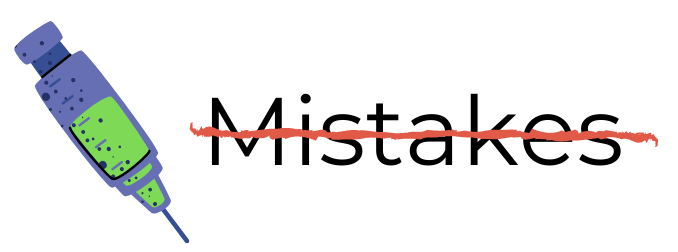Good morning! It has been 338 days since the first documented human case of COVID-19.
In important news, yesterday was Monday, something which seems baffling to me in retrospect. It’s got to be Thursday at least by now, right?
Today we are going to go through some headlines, but I also wanted to tease the In-Depth that I’m planning for later this week. In response to a question from a reader I’m going to review some recent studies on the safety of airplanes from a COVID-19 perspective.
As usual, bolded terms are linked to the running newsletter glossary.
Keep the newsletter growing by sharing it! I love talking about science and explaining important concepts in human health, but I rely on all of you to grow the audience for this:
Now, let’s talk COVID.

US cases pass 8 million
Yeah, that’s where we are.
Large trial shows little benefit for remdesivir?
A study, sponsored by the WHO, is being widely reported as finding that remdesivir has no benefit on survival in COVID-19. Since this study has not yet been peer-reviewed, I won’t be linking to it.
However, I did want to mention that I find this study to be really methodologically flawed. One of the problems in clinical studies is keeping the protocol—the way the patients are treated—consistent across all of the many thousands of patients in the trial. This is important for scientific consistency but also for the ability to provide statistical power to the test.
Clinical trials are often “event-driven,” with the trial intervention—in this case remdesivir—being studied for its ability to prevent, or cause, a certain event. In this case, death. For the sake of statistically valid results, in an ideal trial you would not have variation in the intervention and the event would be something that generally happens before other treatments are received. The more variation in protocol there is, and the more other treatments patients can receive, the more random events may occur that will obscure any potential signal of an effect that you may get from your trial intervention. In other words, to have a really clean experiment that you can analyze statistically, all your patients need to be treated the same way.
Why? Well, for example, let’s say you’re trying to treat chronic pain and your protocol has no rules for whether or not patients can receive oxycodone. Your trial investigators might have inconsistent personal views about prescribing this controversial drug. Your placebo arm might be full of patients who received it, while your intervention arm might not. Since we know it’s a very effective pain killer, your clinical trial would be full of variations that would ruin your results.
A consistent treatment protocol helps us to perform statistical tests that will indicate whether the intervention works or not.
In this large study, with so much variation in how patients were treated, I’m not surprised that it was hard to detect an effect from remdesivir. That’s not to say that I think remdesivir improves survival—it has never been demonstrated to do that—but I don’t know that it doesn’t, either.
So far, remdesivir has been demonstrated to reduce hospital stay lengths, which is really rather important when you’re thinking about keeping hospitals below capacity and able to treat patients. Indirectly, that saves lives. That’s a benefit that has made it important during this pandemic, whether or not it actually prevents deaths on its own.

What am I doing to cope with the pandemic? This:
Getting a crispy fish skin
Once upon a time, I bought fresh fish on a regular basis. These were amazing times, when I could buy fish with skin that had been air-dried on ice for a good portion of the day. It was easy to throw these fish into a pan and get a perfectly caramelized, crispy skin.
Fish skins seem hard to cook until you realize all the need is patience. They stick to the pan, they won’t budge, they tear…except, when a fish skin is done cooking, it will lift off your pan like it was never stuck at all. The basic principle is to cook them on medium heat with plenty of oil, skin side down, until they move freely. You can even do it on the lower side of heat if you’re patient enough. Just—don’t force the fish to free itself before it’s ready. It’ll tell you when it’s done.
That is, of course, if the skin has been given a chance to dry. During the pandemic, I’ve taken to eating a lot of frozen fish because it got a lot more complicated to take multiple trips out during the week. We still try to limit our grocery trips, rely more on deliveries, and the fish market is not the most justifiable of risks.
Frozen fish has not had the chance to dry, usually. What’s worse, the freezing process damages the skin slightly and releases moisture that might not have been released otherwise. Even if it’s immediately flash-frozen, there are just certain disadvantages to frozen fish over fresh fish.
So, making that switch, I had puzzling months where I couldn’t figure out why it seemed like my skills with cooking fish had gone entirely away. Everything stuck forever, I couldn’t seem to get the skin crispy before the fish was cooked to hell, I didn’t know what was going on.
And then I figured out it was the fault of the freezing. Having figured that out, I started making sure to dehydrate my fish a little bit before cooking them. The process is simple enough—pat the fish dry with a paper towel, place them skin side-up in a bowl, and then dust the surface of the skin with some kosher salt. Let it sit for about 30 minutes, then pat dry again with a paper towel. After this treatment, I find that the frozen fish I cook gets as crispy a skin as anything I’ve ever bought fresh.

Join the conversation, and what you say will impact what I talk about in the next issue.
Also, let me know any other thoughts you might have about the newsletter. I’d like to make sure you’re getting what you want out of this.

This newsletter will contain mistakes. When you find them, tell me about them so that I can fix them. I would rather this newsletter be correct than protect my ego.
Though I can’t correct the emailed version after it has been sent, I do update the online post of the newsletter every time a mistake is brought to my attention.
No corrections since last issue.
Thanks for reading, everyone! Have a great week.
See you all next time.
Always,
JS



I tested positive for Covid-19 first week of April. I tested positive for antibodies in May. I tested positive again for antibodies last week. Which is more likely:
1. My body continues to produce antibodies a half year after I was infected?
2. I was infected a second time, and my body produced antibodies against the second, more recent, infection, resulting in my being asymptomatic?